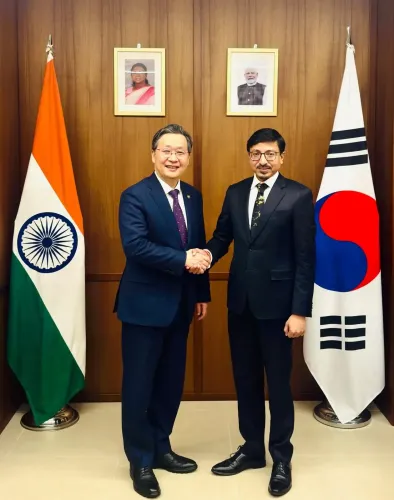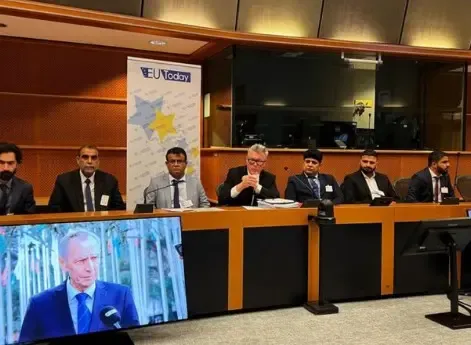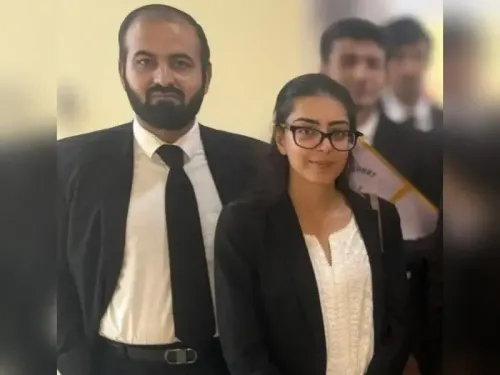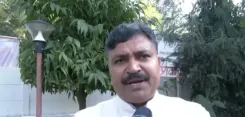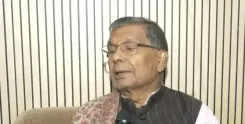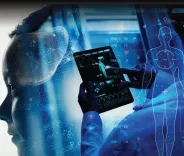Can India and Japan be a Force for Peace and Progress?
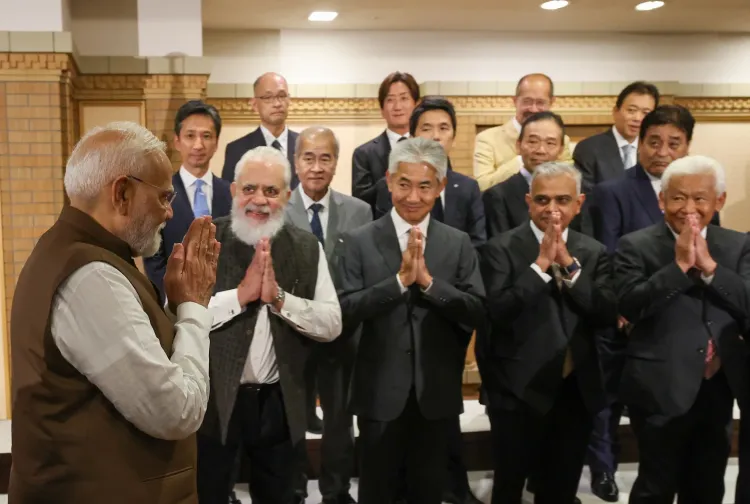
Synopsis
Key Takeaways
- India and Japan's partnership is crucial for regional stability.
- Shared strategic outlook enhances collaboration.
- Focus on security and innovation drives economic growth.
- Indian diaspora plays a vital role in fostering ties.
- Future collaborations promise prosperity for both nations.
Tokyo, Aug 29 (NationPress) Prime Minister Narendra Modi emphasized on Friday that India and Japan will persist as a pivotal force for peace, progress, and stability within Asia and globally. Praising the robust relationship between the two nations, he remarked that they are not merely close allies but also ancient civilizations, vibrant democracies, and prominent economic powers with a shared strategic perspective.
In an interview with Japan's renowned newspaper The Yomiuri Shimbun, PM Modi expressed eagerness to meet his Japanese counterpart, Shigeru Ishiba, highlighting their mutual aim to bolster security, enhance resilience, spur innovation, and ensure prosperity for the citizens of both nations.
Reflecting on his two-day trip to Japan, PM Modi stated, "I am thrilled to be in Tokyo again for the 15th India-Japan Annual Summit. My heartfelt thanks to Prime Minister Ishiba for the kind invitation. India and Japan are not just close partners; we are ancient civilizations, vibrant democracies, and leading economies. Our common strategic outlook binds us together. Over the past decade, our relationship has reached unprecedented levels since its elevation to a Special Strategic and Global Partnership. The annual summit itself showcases the depth and vitality of our bonds."
"During my discussions with Prime Minister Ishiba, I am eager to map out the next chapter of our collaboration. Our priorities include fortifying security, boosting resilience, promoting innovation, and delivering prosperity for our peoples. I also anticipate my visit to Sendai in Miyagi Prefecture, a region known for its resilience and innovation. I am confident that my visit, although brief, will leave a lasting impact. India and Japan will continue to be a force for peace, progress, and stability in Asia and beyond," he added.
Later that day, PM Modi and Ishiba engaged in discussions during the 15th India-Japan Annual Summit, marking the inaugural summit meeting between the two leaders. They are also expected to hold a working dinner.
This marks PM Modi's eighth visit to Japan, with his previous trip occurring in May 2023. Both leaders previously met in June 2025 during the G7 Summit in Kananaskis, Canada, and at the 21st ASEAN-India Summit in Vientiane, Laos, last year.
During the interview with The Yomiuri Shimbun, PM Modi emphasized that the goodwill and friendship between the citizens of India and Japan are integral to their bilateral relationship. He noted that Japanese professionals are highly regarded in India and have carved out a significant presence for themselves. He also recognized the contributions of the Indian diaspora to various nations' growth.
When queried about advancing people-to-people exchanges, PM Modi stated, "The immense goodwill and friendship between the people of India and Japan form the core of our relations. There is a strong receptivity toward our cultures and cuisines in both nations. Japanese professionals are esteemed in India, having established a notable presence."
"Conversely, the global Indian diaspora is playing a crucial role in the development of various countries. Whether it involves Indian IT experts or scientific talent, a greater presence of the Indian diaspora in Japan can help catalyze new industries and areas of knowledge where our two nations have much to gain. We have also established significant agreements under Japan's Specified Skilled Worker (SSW) program and the Technical Intern Training Program (TITP) to enhance the advanced manufacturing skills of our workforce. This will foster the growth of our manufacturing sector and align with our vision for a developed India. We are also dedicated to promoting language education in India, which will facilitate better connections and mutual understanding between our peoples. I look forward to discussing this crucial aspect of our relations during the summit," he added.
PM Modi arrived in Japan early Friday morning, marking the first leg of his two-nation journey. Upon his arrival in Tokyo, he was welcomed by Japan’s Ambassador to India, ONO Keiichi, India’s Ambassador to Japan, Sibi George, and other senior officials.
In a post on X, PM Modi stated, "Landed in Tokyo. As India and Japan continue to bolster their developmental cooperation, I am eager to engage with PM Ishiba and others during this visit, providing an opportunity to deepen existing partnerships and explore new avenues for collaboration."
PM Modi received a warm welcome from the Indian community, who greeted him with traditional cultural performances and joyous cheers upon his arrival in Tokyo. He praised the Indian community in Japan for their commitment to preserving their cultural heritage while making meaningful contributions to Japanese society.
In a post on X, PM Modi remarked, "I was genuinely touched by the warmth of the Indian community in Tokyo. Their dedication to making significant contributions to Japanese society while preserving our cultural roots is truly commendable. In the coming hours, I plan to engage in discussions with business leaders to further invigorate the trade and investment relations between India and Japan."
After concluding his engagements in Japan on Saturday, PM Modi will travel to China to attend the Shanghai Cooperation Organisation (SCO) Summit in Tianjin from August 31 to September 1. In his departure statement issued on Thursday, PM Modi expressed anticipation for meeting Chinese President Xi Jinping, Russian President Vladimir Putin, and other leaders on the sidelines of the SCO Summit.


